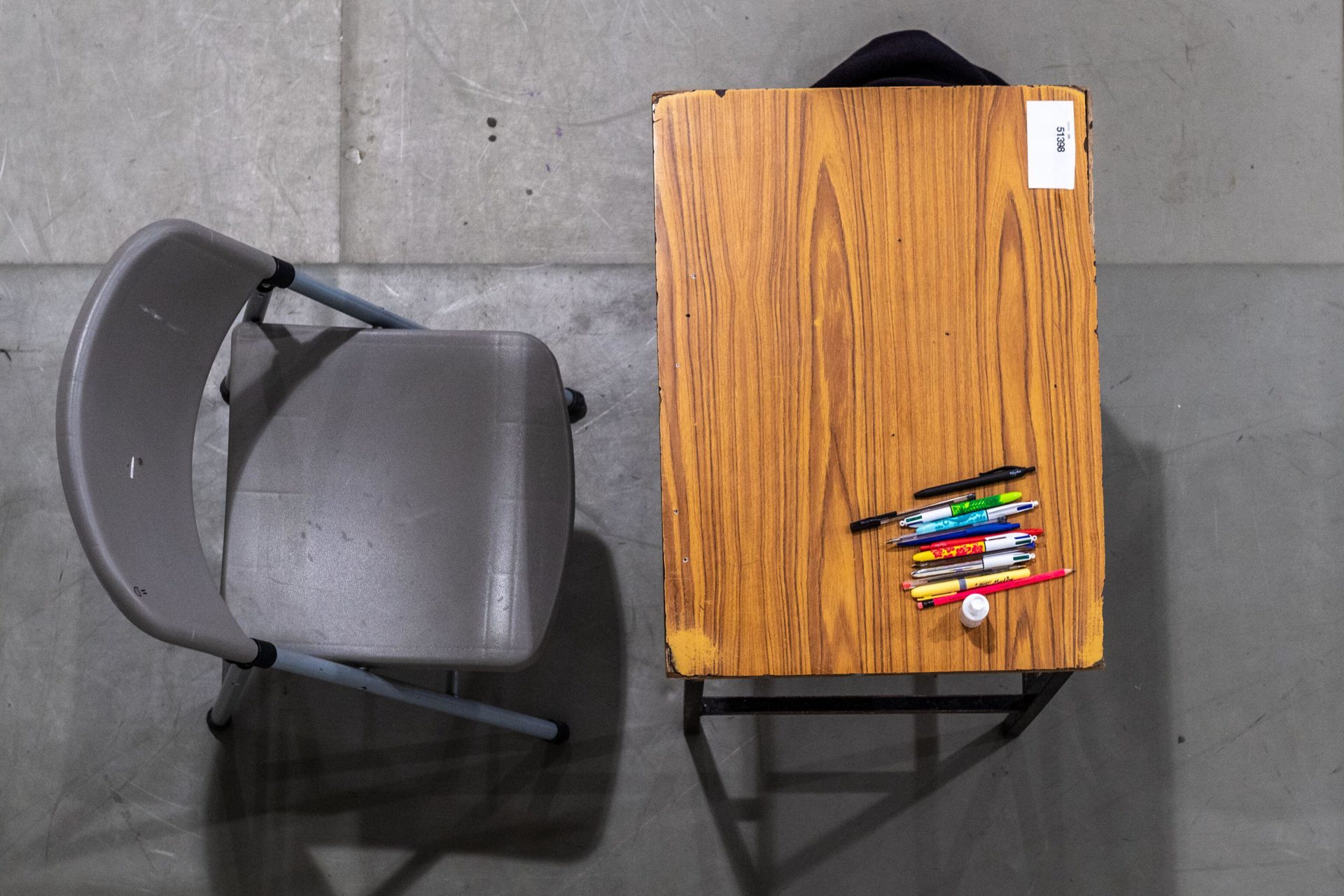October is dyslexia awareness month, so this week, senior cycle student Sive O’Brien joined The Pat Kenny Show to explain the challenges faced by dyslexic students.
Ms O’Brien explained that she was diagnosed at the age of around 12 or 13, despite having a lot of difficulties with reading, spelling and processing information.
“The reason I got diagnosed so late is because I masked it a lot when I was in primary school,” she said.
“It wasn’t even my goal, I just masked it naturally; like, I’d pretend to read books.
“I’d look at the books and I’d look at the words, but nothing would go in.
“I got away with it for a long time because a lot of the teachers thought I was reading really fast and reading loads, but really I wasn’t.”
 Preschool girls and teacher reading storybook in classroom. Image: Connect Images / Alamy. 5 December 2009
Preschool girls and teacher reading storybook in classroom. Image: Connect Images / Alamy. 5 December 2009However, Ms O’Brien’s sixth class teacher recognised the indicators of dyslexia in her, which led to a formal diagnosis.
“At first, I was... not embarrassed, but I just felt a bit overwhelmed with the diagnosis,” Ms O’Brien said.
“I just thought it meant I was bad at reading and writing, and then in school, I didn’t really receive much support.
“I didn’t really understand truly what dyslexia was and how I was meant to learn with dyslexia until I asked for the help.
“Then when I started understanding it, I became more aware of things that helped me and the accommodations that I do need.”
Supports
Ms O’Brien explained that she received learning support classes, which helped her to understand the different strategies for learning with dyslexia.
However, she said one of the prevailing barriers to education for her and other dyslexic students is the lack of extra time available for State exams.
CEO of Dyslexia Ireland Rosie Bisset said that while there are currently many support options available to dyslexic students in Irish schools, extra exam time is still not included in those.
 Credit: AG News/Alamy Live News
Credit: AG News/Alamy Live News“In most jurisdictions, extra time was the first accommodation that’s there in the list of things,” she said.
“It’s fair to say – and Sive has mentioned – there are some accommodations available if you meet the criteria.
“But the criteria can be quite strict for some of those, [and] what we don't have is extra time.
“That is one that would make a really substantial difference, because you’re talking about young people who have struggled to perhaps read the paper, may need to reread it multiple times for meaning.”
Main image: Learning support worker with child in literacy class. Image: roger askew / Alamy. 2009









